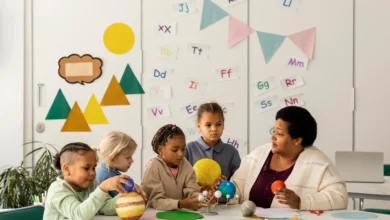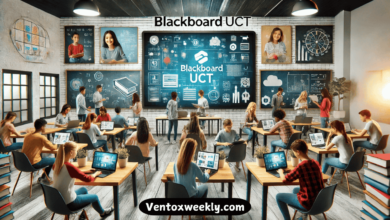The Essence of Effective Online Education: Strategies and Benefits

Understanding the Evolution of Online Education
Online education is more than just a convenient alternative to traditional classrooms. This approach to education is dynamic and always changing, making it ideal for the fast-paced, digital world we live in. With the advent of the Internet, education has transitioned from static classroom environments to more flexible digital spaces. This shift has made it possible for students worldwide to access high-quality education without the constraints of geographical and financial barriers.
Online learning began with basic correspondence courses but has swiftly evolved into sophisticated educational platforms that offer comprehensive programs. These platforms now support diverse learning methodologies, helping students benefit from a comprehensive yet adaptable education experience. Today, institutions provide a range of Missouri online degrees, enabling learners from various backgrounds to pursue advanced education that fits their schedule and lifestyle. This transformation in educational delivery has been pivotal in creating inclusive learning opportunities that cater to a spectrum of learning needs and preferences.
Missouri offers a wide range of online degree programs through its universities, allowing students to earn degrees in fields such as business, healthcare, education, and technology. These programs provide flexible learning options, enabling students to balance their education with work and personal commitments. Accredited institutions like the University of Missouri, Missouri State University, and Northwest Missouri State University offer high-quality online education with a variety of support services for remote learners.
Why Online Education Appeals to Learners
The appeal of online education primarily lies in its inherent flexibility and accessibility. Unlike traditional learning settings, where attendance and rigid schedules are mandatory, online education empowers learners to design their study schedules around personal and professional commitments. This is particularly advantageous for working professionals and parents, who can now upgrade their skills and qualifications without putting their careers or family responsibilities on hold.
Additionally, online education offers a rich diversity of delivery methods. Learners can engage with content through live lectures, recorded sessions, and interactive forums. This flexibility enables students to learn on their own and according to their personal learning styles, ensuring a more personalized education experience. By offering such varied learning modalities, online education institutions cater to a wide array of learning preferences and can effectively support the individual needs of their students.
Main Components of a Robust Online Education Program
Success in online education is contingent upon a few key components that enhance engagement and efficacy. At the heart of a robust online education program are interactive elements like discussion boards, real-time video conferencing, and multimedia presentations. These elements maintain student interest and actively involve them in the learning process, promoting better engagement and retention of information.
The significance of these components is underscored by the integration of interactive technology in education, which enhances the educational experience by creating an enriched, interactive, and engaging learning environment. Furthermore, efficient learning management systems are essential as they ensure the seamless delivery of content and facilitate communication between students and instructors, creating a more organized and structured learning journey.
The Role of Accreditation and Qualified Faculty
In online education, the quality of a program is often gauged by its accreditation status and the qualifications of its faculty. Accreditation serves as a hallmark of educational quality, assuring students and employers that the program adheres to rigorous academic standards and that the qualifications earned will be recognized and esteemed in professional and academic circles globally.
Moreover, the involvement of qualified and experienced faculty is crucial. Instructors not only offer subject expertise but also shape the learning environment with their diverse teaching strategies. Their ability to engage students through various online tools significantly impacts student success. This means talented educators are an indispensable asset in fostering a conducive and effective learning atmosphere within online programs.
Technological Literacy and Support Are Keys
A common misconception is that online education is an easier route than its traditional counterpart. However, to thrive in this learning environment, participants must have a foundational level of technological literacy. Understanding the digital tools and platforms used for course delivery is crucial not only for students but also for educators who must convey knowledge effectively.
The provision of robust technical support further bolsters the online learning experience. It ensures that technical issues do not hinder a student’s ability to access and benefit from the educational resources. Institutions must make available comprehensive support services to address potential connectivity issues, platform navigation challenges, or software-related obstacles. This includes onboarding sessions, detailed tutorials, and a dedicated helpdesk that can respond promptly to technical queries, thus ensuring a smooth and uninterrupted learning journey.
Real-Life Success Stories in Online Education
Online education has the power to transform lives by providing educational opportunities to a broader audience. Countless individuals have harnessed the power of online learning to climb the professional ladder and expand their knowledge base. For instance, many individuals, constrained by their professional or personal commitments, have been able to pursue higher education degrees online. This flexibility has allowed them to enhance their credentials and apply newly acquired skills directly within their careers, leading to career advancement and personal growth.
The success stories of these learners highlight the potential of online education to open new pathways for learning and growth. As learners around the world continue to embrace online education, it becomes increasingly clear that the future of learning lies in its ability to be accessible, flexible, and tailored to the needs of global students.




